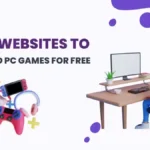In the rapidly evolving landscape of property management, technology has become an indispensable ally for landlords. From streamlining communication to enhancing property security, the right tech tools can significantly simplify the responsibilities of property owners.
In this digital era, landlords are discovering a multitude of tools that not only make their lives easier but also contribute to a more efficient and seamless rental management experience. In this article, we explore eight must-have tech tools that every landlord should consider incorporating into their toolkit.
1. Smart Home Technology:
The integration of smart home technology transcends basic security measures. Landlords embracing this trend explore features like smart thermostats for energy efficiency, smart locks with temporary access codes for enhanced security, and even AI-powered devices for predictive maintenance. By staying at the forefront of technological advancements, landlords not only attract tech-savvy tenants but also position their properties as modern and forward-thinking. Moreover, these technologies contribute to resource efficiency, reducing energy consumption and operational costs.
2. Online Rental Listings Platforms:

The significance of online rental listing platforms extends beyond mere property showcasing. Landlords leverage these tools to harness the power of digital marketing, utilizing search engine optimization (SEO) and social media integration. Additionally, these platforms often provide analytics, allowing landlords to assess the performance of their listings and refine their marketing strategies to appeal to specific demographics. By employing professional photography and compelling property descriptions, landlords can create a compelling online presence that attracts and engages potential tenants.
3. Electronic Lease Signing Platforms:
Electronic lease-signing platforms represent a paradigm shift in lease management. Beyond the convenience of digital signatures, these platforms often include features like automatic lease renewals, integrated background checks, and e-payment options. Landlords benefit not only from reduced paperwork but also from enhanced lease compliance and a more secure and streamlined leasing process. Furthermore, these platforms offer a secure repository for all lease-related documents, ensuring easy access and retrieval.
4. Property Management Software:
Property management software serves as the central nervous system for efficient landlord operations. These robust platforms go beyond basic rent collection, lease tracking, and maintenance requests. They offer advanced features such as financial reporting, document storage, and tenant communication portals. By automating complex processes, landlords not only save time but also gain a comprehensive overview of their property portfolio, enabling strategic decision-making. Additionally, software for rental management often integrates with accounting software, facilitating seamless financial management.
5. Expense Tracking Apps:

Expense-tracking apps for landlords have evolved into comprehensive financial management tools. Beyond basic expense categorization, these apps often include features for budgeting, forecasting, and generating financial reports. Landlords can gain insights into their property-specific financial health, identify cost-saving opportunities, and maintain meticulous records for tax purposes. Additionally, the ability to set alerts for upcoming expenses and monitor real-time financial data provides landlords with proactive financial management capabilities.
6. Communication Platforms:
Effective communication platforms for landlords extend beyond simple messaging. They encompass dedicated tenant portals for submitting maintenance requests, document sharing for lease-related communications, and even AI-powered chatbots for instant responses. Landlords utilizing these platforms foster transparent and open communication, leading to improved tenant satisfaction, quicker issue resolution, and a more harmonious landlord-tenant relationship. The integration of these platforms with property management systems ensures seamless data flow, preventing communication gaps and enhancing overall operational efficiency.
7. Virtual Property Tours and Inspections:
Virtual property tours and inspections have become immersive experiences that go beyond basic video walkthroughs. Landlords employ 360-degree virtual tours, augmented reality (AR), and even virtual reality (VR) technologies. These tools not only provide potential tenants with a lifelike exploration of properties but also enable landlords to conduct thorough inspections remotely. The result is a modern, tech-driven approach to property showcasing and management that aligns seamlessly with contemporary preferences.
8. Energy Management Systems:
Energy management systems have become integral tools for landlords seeking to optimize energy consumption within their properties. These systems often integrate with smart devices to monitor and control lighting, heating, and cooling systems. Landlords can analyze energy usage patterns, set automated schedules for optimal efficiency, and receive real-time insights into consumption trends. By implementing energy-saving measures, landlords not only contribute to environmental sustainability but also reduce utility costs, making their properties more attractive to eco-conscious tenants.
Conclusion
As technology continues to redefine the real estate industry, embracing these seven essential tech tools can empower landlords to navigate the complexities of property management with ease. From automating routine tasks to fostering transparent communication, these tools not only enhance efficiency but also contribute to a seamless and modernized landlord-tenant relationship. By incorporating these must-have tech solutions into their toolkit, landlords can position themselves at the forefront of a tech-driven era in real estate.










